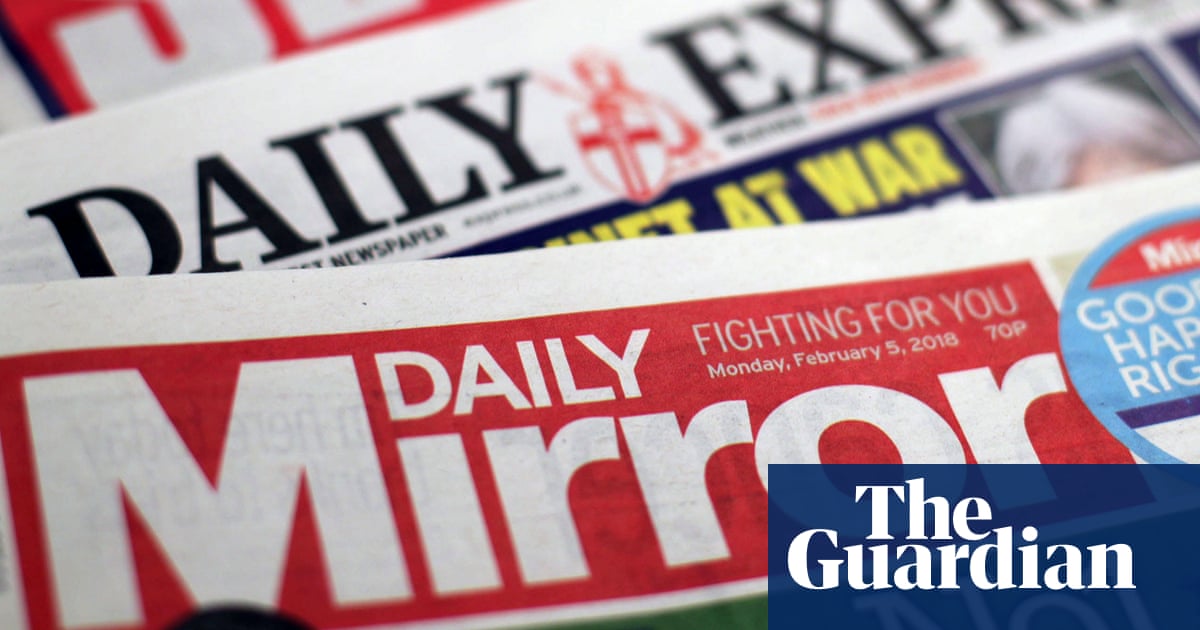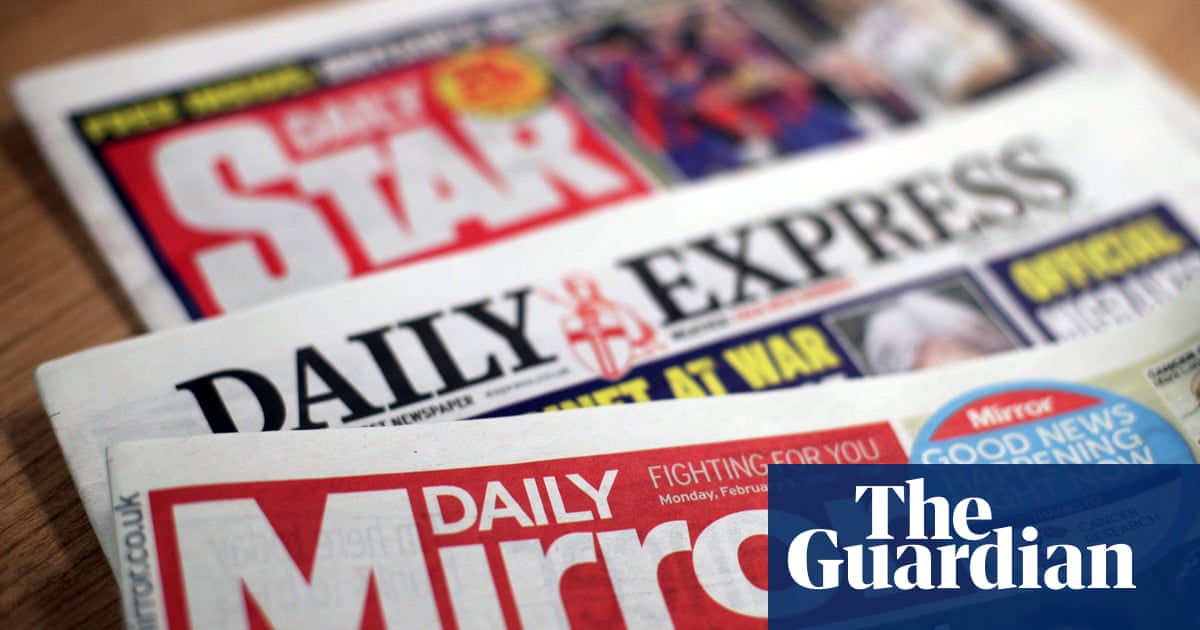
The publisher of the Mirror and the Express is to cut 200 roles in a £30m cost-cutting drive, after advertisers failed to spend heavily through the World Cup, Black Friday and Christmas season.
Reach, which also owns hundreds of regional titles including the Manchester Evening News, Birmingham Mail and Liverpool Echo, reported a slump of 20.2% in print advertising and 5.9% in digital ads in the traditionally strong fourth quarter.
The newspaper group said this was largely because of a significantly lower than anticipated benefit from traditionally stronger ad spending around Black Friday and Christmas, which has affected the whole sector. It added: “More broadly, we have also seen the continued impact of macroeconomic and consumer uncertainty, reflected in slowing market demand for advertising.”
Shares in Reach plunged by more than a fifth as the company also warned it would miss the annual consensus of profits of £112.8m in a range of “mid-single-digit percentage”.
The publisher told staff the job and cost cuts would be achieved through measures including “simplification of central support functions, supply chain efficiencies in print and distribution, and accelerated removal of editorial duplication”.
The company said the programme, which additionally includes withdrawing advertised vacancies, would allow it to continue to shift to a more digital-led and profitable future.
“Under the proposals we’re announcing today we anticipate that, regrettably, around 200 roles of current employees will be made redundant,” the company told staff in an internal email on Wednesday, before a staff town hall meeting.
Reach, which employs about 4,000 permanent staff, is also investing heavily in a digital operation to tap into the US market.
Jim Mullen, the chief executive of Reach, said the business had been hit by a “double whammy” of plunging ad spend and soaring costs, making the situation worse than the impact on the business at the height of the coronavirus.
Mullen said the cost of newsprint had soared by 60% over the last year and the business also had about £70m to pay each year in pension deficit obligations and historical legal issues relating to allegations of phone hacking.
“All of this puts us in an extremely challenging position,” said Mullen, in an email to staff. “We’re not alone in facing these challenges, and we have a way through this, but I want to be honest with you now about the fact that it will mean us taking some very tough operational decisions and strong actions on costs.”
In an email to staff, the company said it could not rule out further rounds of redundancies, and that hiring would continue for “a number of strategically critical roles”.
The publisher also did not rule out paying a dividend to shareholders despite the profits plunge and staff cuts.
“Dividends remain a critical part of the investor proposition and key to maintaining the support of our shareholders, many of whom are invested in Reach as part of their pensions,” the company said. “Dividend policy is ultimately set by the board and will be decided, as normal, before we announce our full-year results.”
More than 1,000 journalists at Reach went on strike for one day in August last year over pay. Further strike action, as well as a “work-to-rule” order, was averted when unions accepted a revised pay offer.
In July 2020, Reach cut 550 staff, about 12% of its workforce at the time, in response to the Covid pandemic.
In November, the Independent, where the Russian-British businessman Evgeny Lebedev is a shareholder, placed more than a fifth of its staff at risk of redundancy as a decline in the digital ad market and worsening economic conditions forced the online-only publisher to seek to cut costs.












